Resources for Professionals
There are many resources for healthy aging, right in your community!
We have a number of community resources designed for aging healthy and a number of community groups and clubs listed with opportunities to connect socially in your area. If you can’t find what you are looking for please reach out to the contact below in your area for more information.
PARTNER RESOURCES
LOOP – Fall Prevention Community of Practice
Loop connects you with over 2000 Community of Practice members. These are your peers and experts in fall prevention. Loop is the voice for fall prevention locally, provincially and nationally. They inform, share ideas and support each other to improve the implementation of evidence-informed fall prevention practices. Together, we can create supportive communities where older adults enjoy independence and health through the prevention of falls. Get connected with others who share your passion for fall prevention!
November is Fall Prevention Month in Ontario and we all have a role to play. This website will equip health and service providers, business, government and academia with the tools to raise awareness and engage their communities in preventing falls and fall-related injuries. Check out all the great resources at www.fallpreventionmonth.ca
RNAO Best Practice Guideline – Preventing Falls and Reducing Injury from Falls, Fourth Edition
The purpose of this guideline is to outline evidence-based approaches for preventing falls and reducing fall injuries for adults.
Age Friendly Communities Ontario
An age-friendly community (AFC) is a community where policies, services and physical spaces are designed to enable people of all ages to live in a secure and accessible physical and social environment. They assist Ontario communities to plan, implement and sustain Age Friendly Communities.
Age Friendly Community (AFC) Knowledge Exchange
The AFC Knowledge Exchange is where you can learn from others, join the AFC conversation, get connected to the AFC Knowledge Broker, and learn about upcoming opportunities. Join a Regional Age Friendly Network, get connected to educational webinars and new funding announcements.
Seniors Health Knowledge Network [SHKN]
The Seniors Health Knowledge Network is a network of networks that mobilizes evidence, shares knowledge and brokers relationships across disciplines and sectors among: practitioners, researchers, educators, policy makers, and older adults. A broad variety of tools and resources supportive of effective knowledge translation and exchange such as webinars, social media, newsletters, websites, and related web-based technologies which are hosted and supported by the Centre for Studies in Aging & Health at Providence Care. Support to Communities of Practice that engage care providers, researchers, policy makers and others interested in a topic related to the health and care of older adults in conversations and knowledge exchange. Includes a broad cross-sectoral, cross-disciplinary and geographically dispersed membership.
NE LHIN Home and Community Care
If you, or someone you care about, needs health care services at home, at school or in the community, or if you are considering supported living programs or long-term care options, home and community care at the North East Local Health Integration Network can help. They’ll help you make informed choices about your care, when and where you need it. They also have useful information about local community support service agencies, and can link people to these providers to arrange services.
This site put health and community services at the fingertips of people across Northeastern Ontario. Find health services and event near you with just a click of a button on www.northeasthealthline.ca
Ontario Fall Prevention Collaborative
The Ontario Fall Prevention Collaborative is a group of health and social service practitioners (from EMS, to nursing, to policy planners) across Ontario who was brought together by ONF to collectively gather and share information, analyze it and respond to these broader questions that individual practitioners do not have the capacity to address on their own.
McMaster University Optimal Aging Portal
Regional Geriatric Program of Toronto (RGP)
RGP leads and collaborates on initiatives at the provincial, regional, and local levels. They actively support healthcare system priorities by participating in policy and strategy development through thought leadership.
Initiatives of RGP include:
- Specialized Geriatric Services (SGS) – a range of health care services, which use a comprehensive geriatric assessment to diagnose, treat and rehabilitate older adults with frailty (or those at risk of becoming frail) with complex and multiple medical, functional, and psychosocial issues. SGS are provided on a consultative basis by inter professional teams of health professionals in a variety of settings, including home, hospital, outpatient, and long-term care. The goal of SGS is to reduce the burden of disability by detecting and treating reversible conditions and recommending optimal management of chronic conditions. Reach out to the NESGC in your area.
- The Senior Friendly Care (sfCare) Framework, which was developed by in collaboration with provincial stakeholders, including older adults, caregivers, and care providers, provides a foundation for achieving the best possible outcomes for older adults. The Framework’s guiding principles and defining statements collectively describe what senior friendly care looks like. The sfCare Getting Started Toolkit helps bring this foundational vision to life by providing 10 actionable recommendations and practical implementation resources. The sfCare Learning Series provides education modules for clinicians as well as posters and handouts to support patient self-management.
- The Senior Friendly Hospital (SFH) collaborative has been supported through training, coaching, and skills development to grow into SFH implementation teams, each leading the advancement of senior friendly care at their organizations. By creating settings for meaningful in-person and virtual networking, we have enabled teams to learn and work together; sharing their knowledge, tools, and successes with one another.
